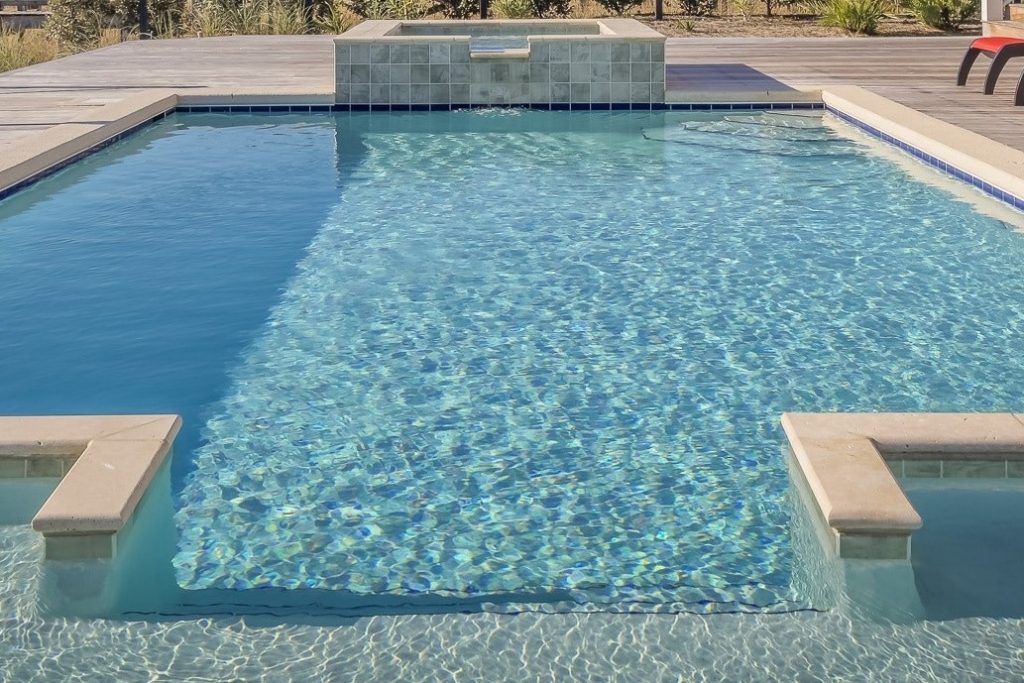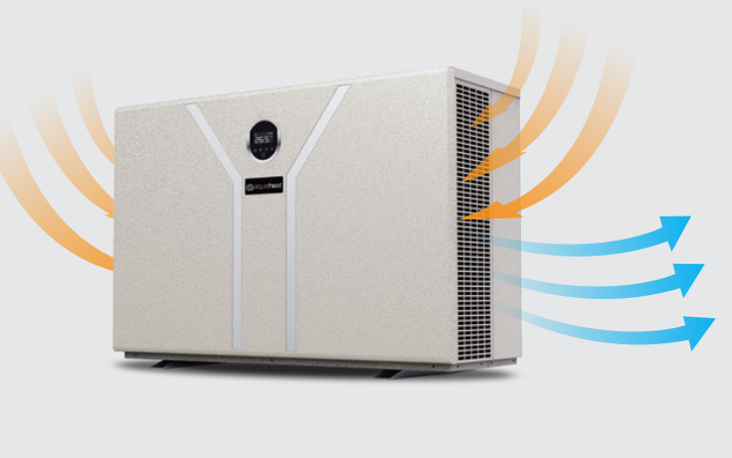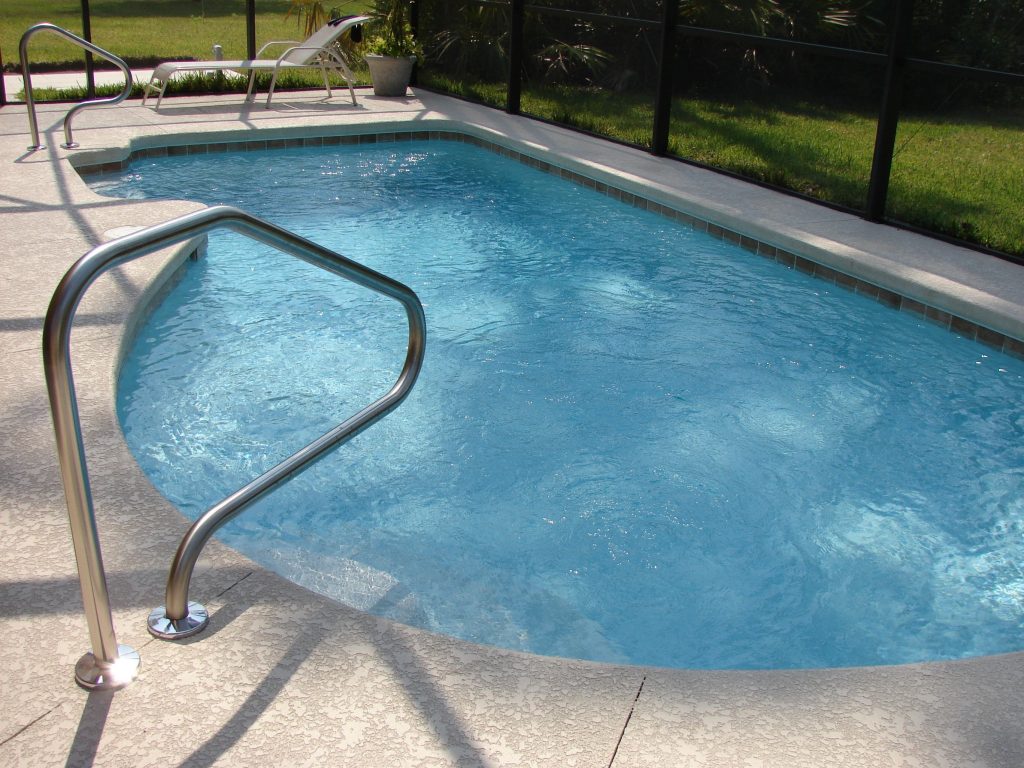
Sustainable Pool Heating
Heat pump pool heating extends your swimming season sustainably using solar energy from the air.
Gas boilers have been used traditionally but due to concerns of global warming and the rising cost of gas, solar systems and electric heat pumps powered by solar panels have become increasingly popular.
The main advantage of heat pump pool heating over a solar system is that it doesn’t take up roof space that can be otherwise used for solar panels, which also generate power for other household needs.
Heat Pump
A heat pump does not have the power of a large gas boiler, so it needs time to heat your pool. It can’t recover the heat loss from a chilly night very quickly.
Set your heat pump timer to run inside the settings of your pool filter pump using your daytime solar power.
Water is a good store of thermal energy and by reducing the heat loss overnight, your heat pump will be able to maintain your pool heat satisfactorily.
More information:


Pool Cover
Use a cover over your pool or spa to retain heating particularly during the shoulder seasons when nights can be quite cold even though days are warm to hot. For southern and inland Australian locations, the surrounding air can be 20 degrees less at night during the shoulder seasons. It doesn’t take long for a pool at 28 degrees to lose heat when the temperature difference is 20 degrees.
Water is a good store of thermal energy and by reducing the heat loss overnight, your heat pump will be able to maintain your pool heat satisfactorily.
If you have a spa pool, you may consider adding a small gas boiler to boost your spa heating quickly from the lower temperature maintained by your pool heat pump.
Evaporation
Warmer pool and spa water will cause greater evaporation. Therefore, use a pool blanket when your pool or spa is not in use to reduce water evaporation.
An average Australian swimming pool of 40,000 litres will lose between 200 and 280 litres of water per day during a typical swimming season of 6 months. This adds up to about the total volume of pool water lost in just one pool season without a pool cover.
A heat pump does not require sunshine to operate effectively because it uses the heat from the surrounding air.
Therefore, it can operate very effectively when it’s cold and wet outside and in the shoulder seasons when combined with a pool blanket. A pool heat pump also works well in shaded areas or located under a house provided there is good air flow.
Solar Heating
On the other hand, solar heating coils are most effective in the middle of summer when the sun is shining strongly. However, your need for pool heating at this time of year is least.
A heat pump will simply turn off when your pool water has reached the set temperature. In the middle of summer, you may not need pool heating at all so the power from your solar panels can be used for other purposes or exported to the grid to reduce your power bill.
The reason why a heat pump is so effective for heating a swimming pool is because its efficiency is very high in raising water temperature to a moderate temperature of around 28 degrees using air temperature greater than 7 degrees, when its evaporator coils no longer need defrosting. Just 1 kW of power will generate around 7 kW of heat energy to heat your pool. The warmer the surrounding air, the more efficient your heat pump .
Hail
Another advantage of a heat pump is that it does not degrade during hail storms or with the activity of birds or possums on your roof. This can be an issue for solar coil systems.
The noise from a heat pump is similar to the noise from an outdoor air conditioning unit. This noise can be quietened by placing the heat pump in your swimming pool equipment area with a structure around it that absorbs noise or alternately position the heat pump in an open area away from bedrooms.
Green Pool Water
Heating your pool places greater importance on keeping your pool water clean so your pool water does not turn green. Warmer pool water makes some types of bacteria grow better and proliferate faster. This causes the free chlorine to be used up more quickly as it kills the bacteria.
Green pool water is a visual clue that your pool water may be contaminated depending on the specific cause. It reflects significant growth of micro-organisms in your pool water that may be dangerous to your family and friends, such as algae.
